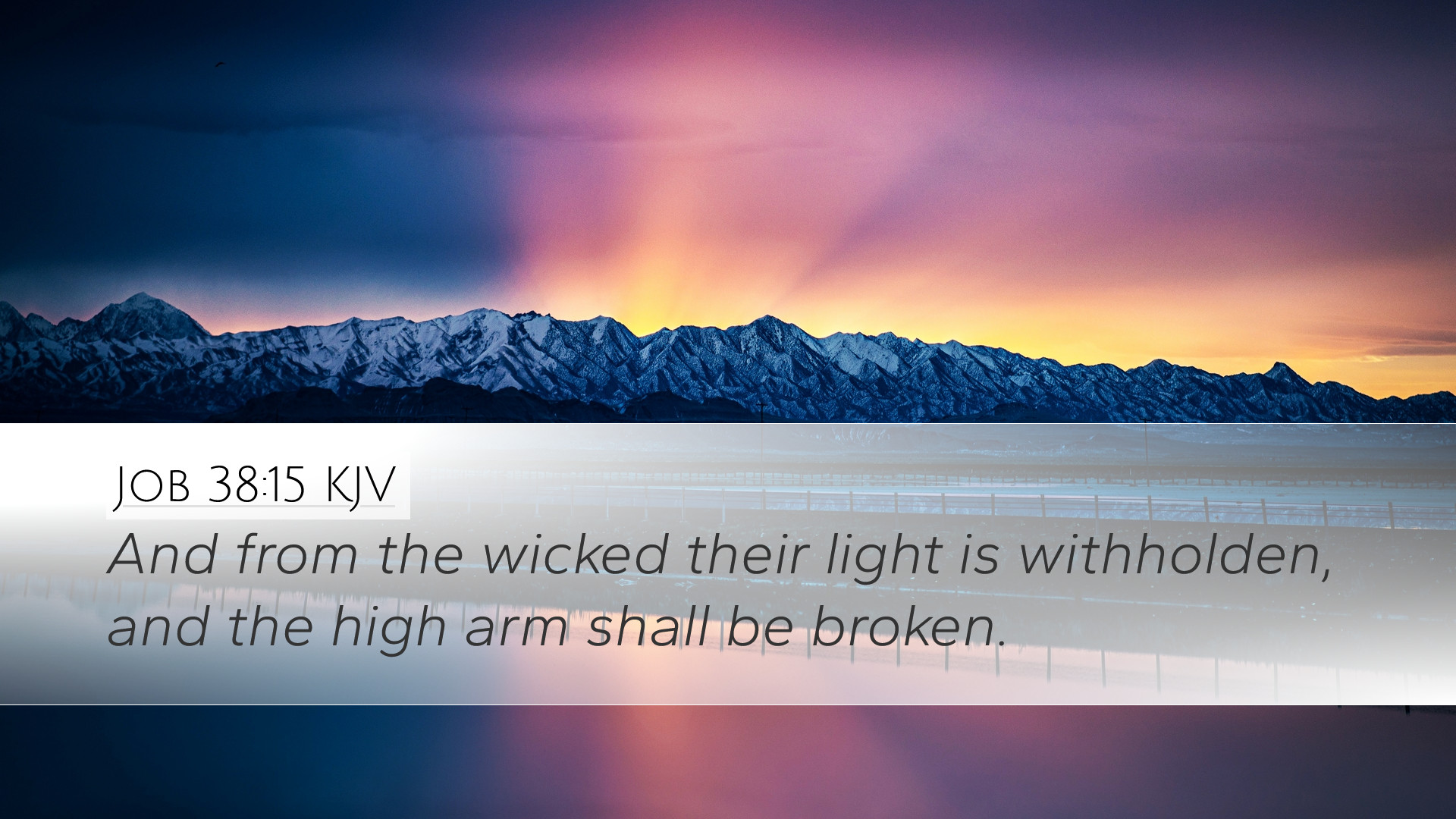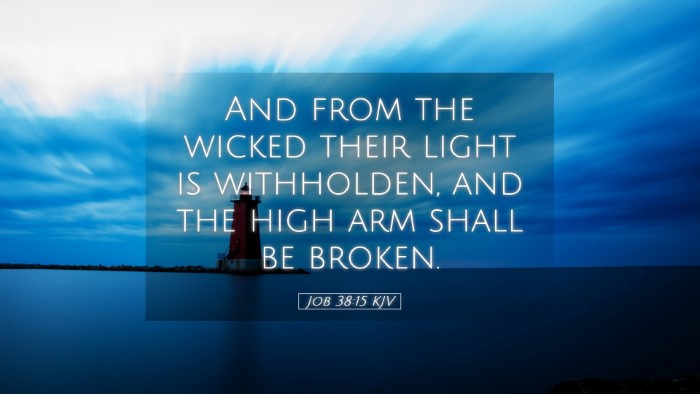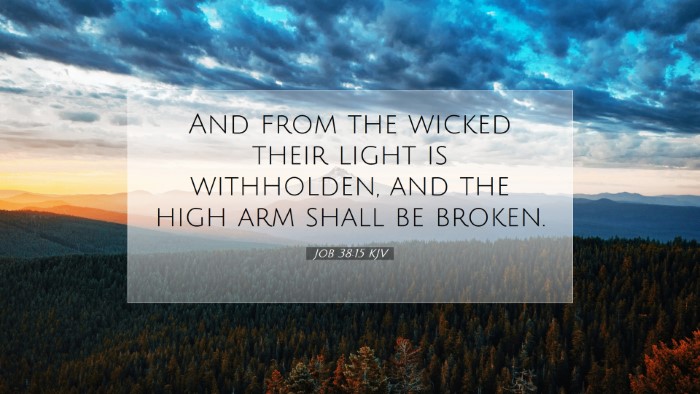Commentary on Job 38:15
Verse Reference: Job 38:15 - "And from the wicked their light is withheld, and the high arm shall be broken."
Contextual Overview
The Book of Job addresses profound themes of suffering, divine justice, and the human condition. In Job 38, God speaks to Job out of the whirlwind, presenting a series of questions that assert the majesty and mysterious wisdom of God. This chapter marks a divine response to Job’s lament and questions regarding his suffering and the justice of God.
Insights from Commentaries
Matthew Henry's Commentary
Henry emphasizes that this verse serves as a reminder of God’s sovereignty over the wicked. The “light” here symbolizes knowledge, understanding, and the blessings of life which are taken away from the wicked. God's justice is portrayed as an active force that withholds goodness from those who choose to rebel against Him. Henry points out that the "high arm" suggests strength and power; hence, the breaking of this arm signifies the downfall of arrogant oppressors. It illustrates the transient nature of wickedness and how its apparent strength only leads to eventual ruin.
Albert Barnes' Notes on the Bible
Barnes offers a detailed exploration of the implications contained in this verse. He notes that it reflects the divine principle of retribution, asserting that those who operate against God’s laws will ultimately face judgment. The verse speaks to a time in which the righteous will see the downfall of the wicked, emphasizing that their defiance against God shall not stand. Barnes highlights that the “light” referred to also encapsulates spiritual insight, suggesting that those who do evil are left in darkness without divine guidance. This, he asserts, aligns with God’s nature, as light is often used throughout Scripture to depict holiness and righteousness.
Adam Clarke's Commentary
Adam Clarke interprets the phrase “from the wicked their light is withheld” as a statement about the moral blindness and spiritual ignorance that envelops the wicked. In a practical sense, Clarke notes that this withholding of light is not just a future punishment but reflects a current reality where the wicked are unaware of their peril. The broken “high arm” signifies the futility of those who rely on their own strength and prowess, warning against self-reliance and arrogance in the face of divine justice. Clarke draws attention to the theme of hope, indicating that the righteous can find assurance in God’s ultimate judgment over evil.
Theological Implications
This verse opens a space for robust theological discussion regarding the nature of God’s justice and the condition of humanity. It compels readers to reflect on the implications of divine sovereignty and human suffering. The withholding of light can be interpreted as a cautionary tale regarding the moral choices made in life, portraying a clear delineation between the paths of the righteous and the wicked. Pastors and theologians may draw from this text resulting insights to craft a deeper understanding of sin, judgment, and the need for repentance.
Application for Pastors and Church Leaders
For church leaders, Job 38:15 serves as a profound pastoral tool that can be applied in teaching about God’s character and justice. When preaching or teaching, leaders can emphasize the assurance that God sees the struggles of His people, contrasting light and darkness within one’s spiritual journey. Furthermore, it invites believers to examine their lives for areas of darkness and encourages a return to the light through repentance and faith.
Conclusion
Job 38:15 encapsulates thorough insights into the workings of divine justice. The cumulative wisdom from public domain commentaries enriches our understanding of God’s sovereignty, the reality of human suffering, and the importance of adhering to divine truths. By integrating these commentaries, we can approach this verse with a deeper appreciation of its theological depth and practical relevance in contemporary faith contexts.


